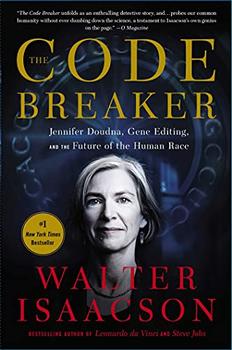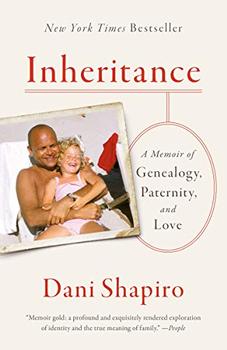Summary | Excerpt | Reviews | Beyond the book | Read-Alikes | Genres & Themes | Author Bio

How DNA Testing Is Upending Who We Are
by Libby CopelandA deeply reported look at the rise of home genetic testing and the seismic shock it has had on individual lives.
You swab your cheek or spit into a vial, then send it away to a lab somewhere. Weeks later you get a report that might tell you where your ancestors came from or if you carry certain genetic risks. Or the report could reveal a long-buried family secret and upend your entire sense of identity. Soon a lark becomes an obsession, an incessant desire to find answers to questions at the core of your being, like "Who am I?" and "Where did I come from?" Welcome to the age of home genetic testing.
In The Lost Family, journalist Libby Copeland investigates what happens when we embark on a vast social experiment with little understanding of the ramifications. Copeland explores the culture of genealogy buffs, the science of DNA, and the business of companies like Ancestry and 23andMe, all while tracing the story of one woman, her unusual results, and a relentless methodical drive for answers that becomes a thoroughly modern genetic detective story.
The Lost Family delves into the many lives that have been irrevocably changed by home DNA tests—a technology that represents the end of family secrets. There are the adoptees who've used the tests to find their birth parents; donor-conceived adults who suddenly discover they have more than fifty siblings; hundreds of thousands of Americans who discover their fathers aren't biologically related to them, a phenomenon so common it is known as a "non-paternity event"; and individuals who are left to grapple with their conceptions of race and ethnicity when their true ancestral histories are discovered. Throughout these accounts, Copeland explores the impulse toward genetic essentialism and raises the question of how much our genes should get to tell us about who we are. With more than thirty million people having undergone home DNA testing, the answer to that question is more important than ever.
Gripping and masterfully told, The Lost Family is a spectacular book on a big, timely subject.
How much power do our genes have to shape who we are? And as the genetic databases of ancestry companies grow larger and larger, what unforeseen implications might this have for our private lives? Well-researched and thoroughly enjoyable to read, The Lost Family is a fascinating look at these and other issues surrounding the rise of commercial DNA testing. With clear and accessible explanations of the relevant science, Copeland describes the basics of gene sequencing and delves into topics including, among others, the business practices of industry behemoths such as Ancestry and 23andMe, the pitfalls of relying on commercial DNA tests for medical information and the hazards of buying into an oversimplified genetic essentialism that treats genes as destiny...continued
Full Review
 (689 words)
(689 words)
(Reviewed by Elisabeth Herschbach).
 In The Lost Family, Libby Copeland examines some of the complex issues surrounding commercial DNA testing, including concerns about privacy and consent. To what extent should we be comfortable entrusting our DNA to powerful corporations that can take our most intimate information—our genetic data—and put it to uses we aren't even aware of and often can't control?
In The Lost Family, Libby Copeland examines some of the complex issues surrounding commercial DNA testing, including concerns about privacy and consent. To what extent should we be comfortable entrusting our DNA to powerful corporations that can take our most intimate information—our genetic data—and put it to uses we aren't even aware of and often can't control?
From the advent of consumer DNA testing, privacy experts have warned that the seemingly simple act of sending in a saliva sample or a cheek swab for genetic analysis can set off a chain of unintended consequences. A powerful reminder of such unforeseen applications came in April 2018, when authorities announced the arrest of Joseph James DeAngelo, alleged to be ...

If you liked The Lost Family, try these:

by Walter Isaacson
Published 2022
Winner of the 2021 BookBrowse Nonfiction Award
The bestselling author of Leonardo da Vinci and Steve Jobs returns with a gripping account of how Nobel Prize winner Jennifer Doudna and her colleagues launched a revolution that will allow us to cure diseases, fend off viruses, and have healthier babies.

by Dani Shapiro
Published 2020
A new memoir about identity, paternity, and family secrets--a real-time exploration of the staggering discovery Shapiro recently made about her father, and her struggle to piece together the hidden story of her own life.